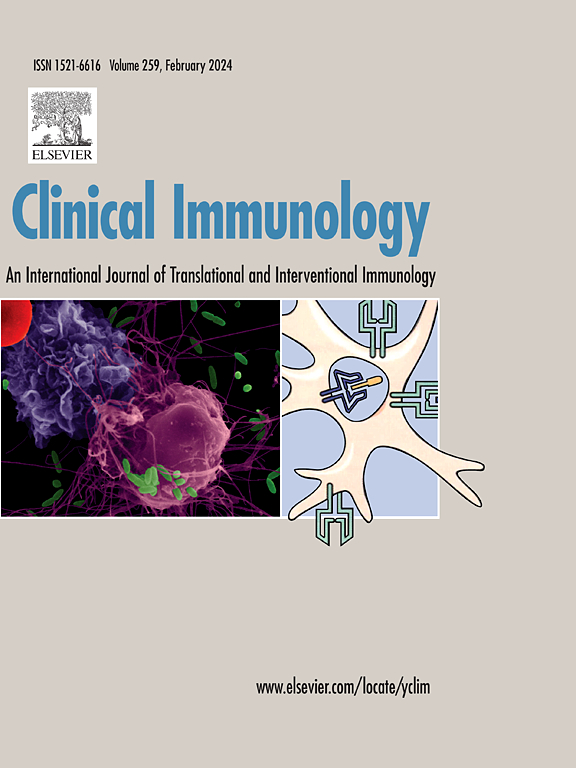Autoantibody development is associated with clinical severity of COVID-19: A cohort study
IF 3.8
3区 医学
Q2 IMMUNOLOGY
引用次数: 0
Abstract
Viral infections, including respiratory diseases such as Coronavirus disease 2019 (COVID-19), are hypothesized to contribute to the onset of autoimmune disorders. Although elevated levels of autoantibodies have been observed following COVID-19, the role of specific autoantibodies linked to autoimmune diseases and their correlation with disease severity remains poorly defined.
In this study, we used a comprehensive autoantibody panel to assess the autoantibody production across different cohorts of COVID-19 patients, categorized by disease severity. We also compared patients with severe COVID-19 to a control group with other severe, non-COVID-related diseases.
Our findings indicate that the severity of COVID-19 corresponds to the overall production of specific autoantibodies, which are particularly associated with COVID-19. This association might predispose to an increased risk for the development of autoimmune conditions after a severe course of COVID-19.
自身抗体的产生与COVID-19的临床严重程度相关:一项队列研究
病毒感染,包括2019冠状病毒病(COVID-19)等呼吸道疾病,被认为是导致自身免疫性疾病发病的原因。尽管在COVID-19后观察到自身抗体水平升高,但与自身免疫性疾病相关的特异性自身抗体的作用及其与疾病严重程度的相关性仍不明确。在这项研究中,我们使用了一个综合的自身抗体小组来评估不同队列的COVID-19患者的自身抗体产生,按疾病严重程度分类。我们还将严重COVID-19患者与患有其他严重非COVID-19相关疾病的对照组进行了比较。我们的研究结果表明,COVID-19的严重程度与特异性自身抗体的总体产生相对应,特异性自身抗体与COVID-19特别相关。这种关联可能会增加COVID-19严重病程后自身免疫性疾病发展的风险。
本文章由计算机程序翻译,如有差异,请以英文原文为准。
求助全文
约1分钟内获得全文
求助全文
来源期刊

Clinical immunology
医学-免疫学
CiteScore
12.30
自引率
1.20%
发文量
212
审稿时长
34 days
期刊介绍:
Clinical Immunology publishes original research delving into the molecular and cellular foundations of immunological diseases. Additionally, the journal includes reviews covering timely subjects in basic immunology, along with case reports and letters to the editor.
 求助内容:
求助内容: 应助结果提醒方式:
应助结果提醒方式:


